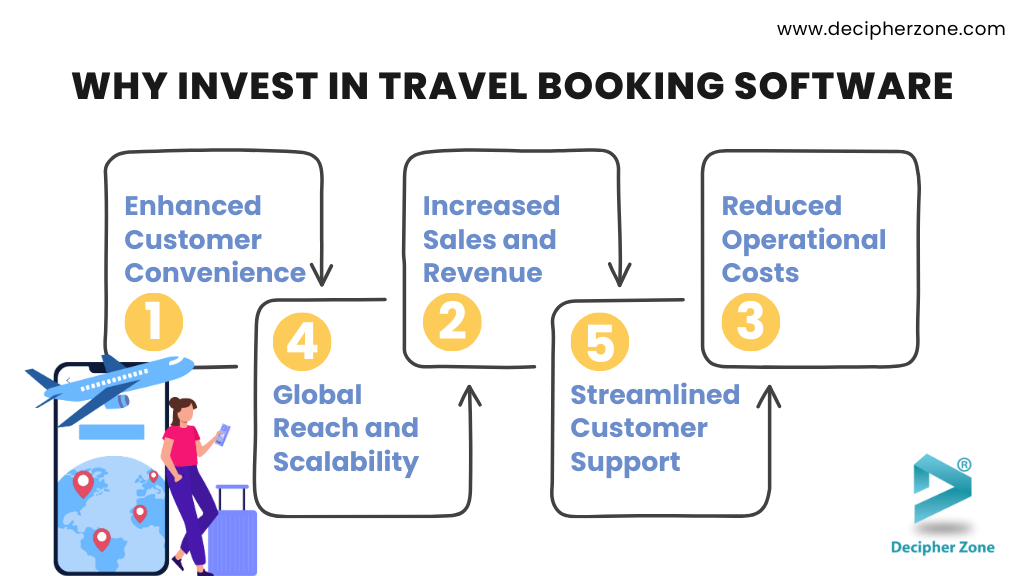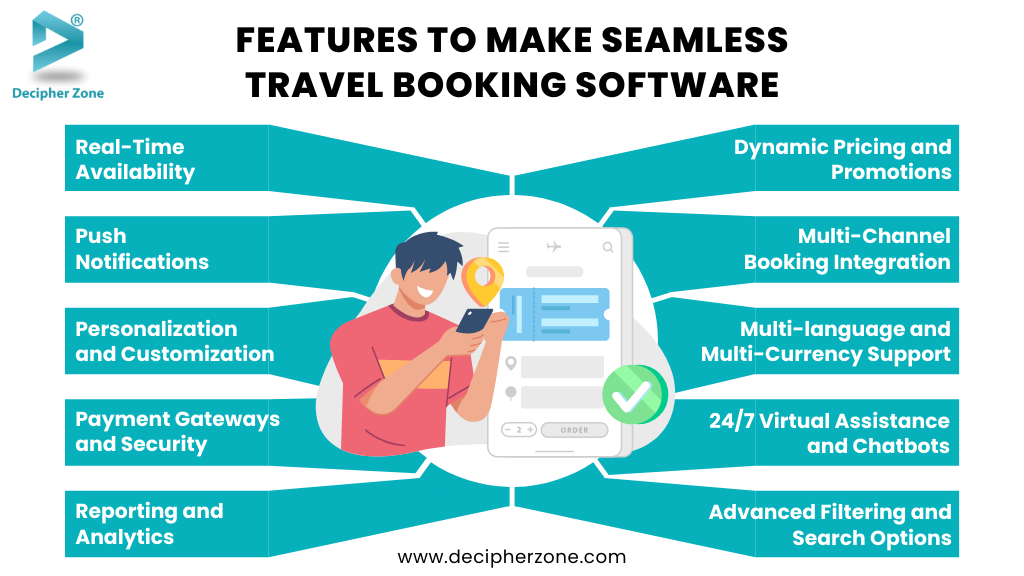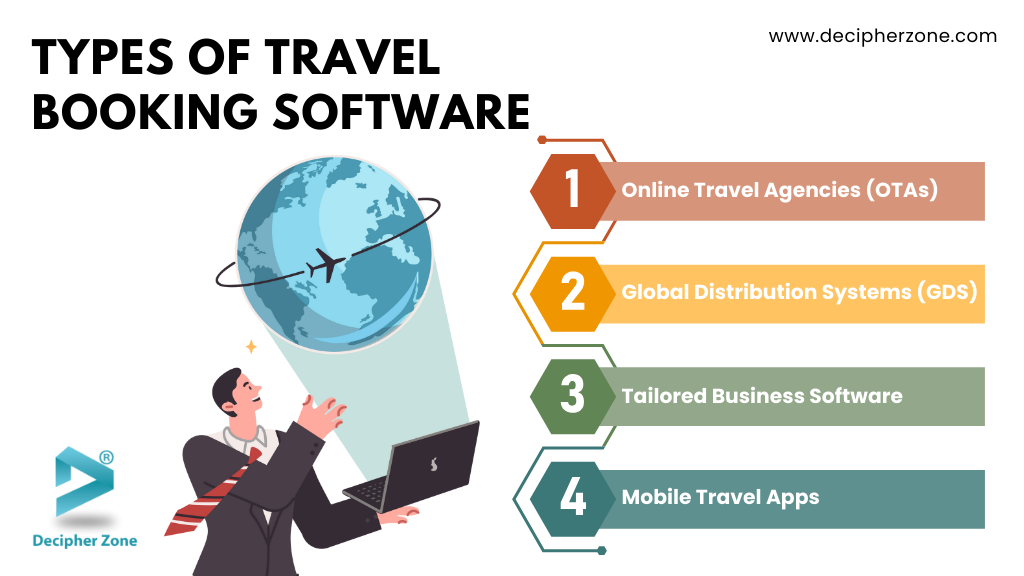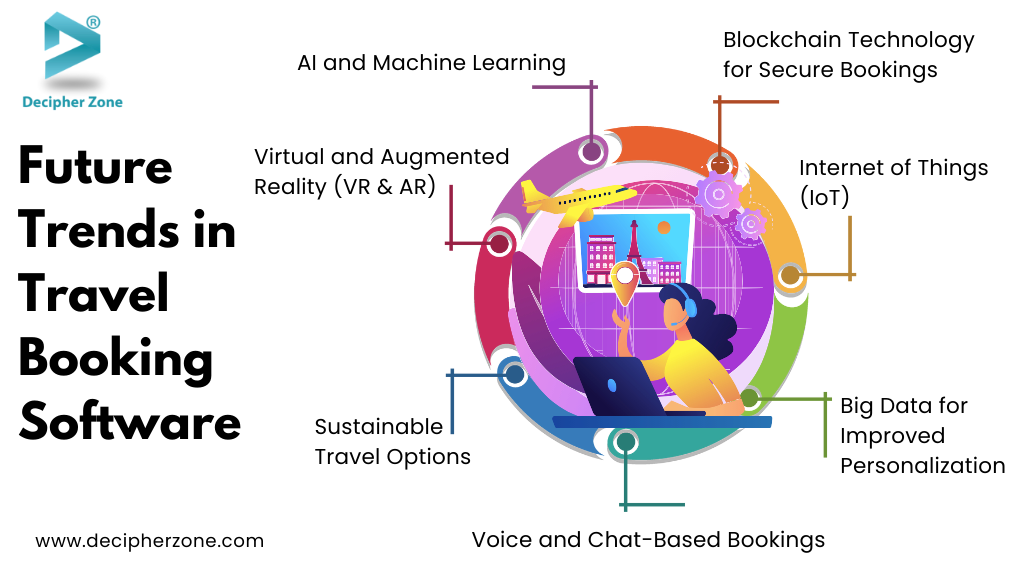Summary:Travel Booking Software is a gem for everyone involved in the travel industry. This savvy guide is designed to meet your needs, whether you’re developing travel software or a traveler seeking to understand the intricacies of how travel booking systems operate. It serves as an essential destination for information, ensuring you gain a complete understanding of the travel booking process from scratch.
Travelers are no longer just seeking destinations—they crave personalized, seamless experiences. From the days of paper tickets and travel agents, we have entered an era dominated by digital advancements that have revolutionized how we explore the world. The demand for tailored travel experiences has skyrocketed, and meeting these expectations requires innovative solutions. Enter Travel Booking Software—indispensable for both travel providers and clients alike.
Integrating technologies into the travel industry has set a new standard. Make travel planning more convenient and enjoyable than ever before with Travel Booking Software.
Let’s explore the various aspects of travel booking software, how it is reshaping the travel industry, driving innovation, and meeting the growing demands of modern travelers.
Here's What You'll Learn:
-
What is travel booking software?
-
Types of travel booking software
-
Impact of booking software on the travel industry
-
Challenges faced by companies and how to overcome them
-
Future trends in travel booking software
-
How Decipher Zone can help in developing travel booking software
What is Travel Booking Software?
Travel booking software is a sophisticated solution designed to make booking travel as effortless as possible. It includes booking services for flights, hotels, car rentals, and excursions. The software streamlines the booking journey from start to finish with real-time inventory management, helping providers track availability and ensure up-to-date options for travelers. Payments can be processed securely and efficiently, supporting multiple payment options for a global audience.
What truly sets travel booking software apart is its focus on UI/UX design. It provides an intuitive booking process that saves time, reduces hassle, and enhances customer satisfaction.
Why Invest in Travel Booking Software?
Investing in travel booking software is a strategic game-changer—not just for convenience, but also as a driver of exceptional customer satisfaction, streamlined operations, and increased profitability. Here's why:

Enhanced Customer Convenience
Travel booking software allows customers to plan, book, and manage their trips from any location and any device—desktop, tablet, or mobile. Users can organize their entire journey without stepping into an office, offering unparalleled convenience.
Increased Sales and Revenue
Travel booking software opens new avenues for upselling and cross-selling. It can suggest related services like travel insurance, guided tours, or premium seating, which enhances the customer experience while increasing revenue.
Reduced Operational Costs
Automation of routine tasks, such as managing inventory, handling payments, and generating invoices, helps reduce manual processes, lowering operating costs. This allows businesses to focus resources on customer service and marketing.
Global Reach and Scalability
Travel booking software offers multiple languages, currencies, and payment methods, making it easier to reach global customers. It also scales to handle increased bookings during peak times.
Streamlined Customer Support
Travel booking software integrates features like live chat, help centers, and self-service options, ensuring that travelers can access answers quickly and feel supported throughout their journey.
10 Core Features to Make Seamless Travel Booking Software
The success of travel booking software is largely due to its robust set of features. Here are the top features that enhance both provider efficiency and traveler experience:

1. Real-Time Availability
Maintaining real-time inventory across multiple platforms ensures accurate and up-to-date options for travelers, reducing double bookings.
2. Push Notifications
Automated confirmations, reminders, and updates ensure that travelers receive timely notifications at every stage of their trip.
3. Personalization and Customization
The software gathers traveler preferences, past behaviors, and interests to offer tailored suggestions, creating a personalized experience.
4. Payment Gateways and Security
Secure payment gateways support a variety of currencies and payment methods, providing travelers with confidence during transactions.
5. Reporting and Analytics
Providers can track booking trends and customer behavior, using insights to optimize services and make data-driven decisions.
6. Dynamic Pricing and Promotions
This feature allows for flexible pricing and real-time promotions based on demand, seasonality, or booking times, optimizing profitability.
7. Multi-Channel Booking Integration
Integration with various platforms (websites, mobile apps, social media) offers a seamless booking experience across devices.
8. Multi-Language and Multi-Currency Support
This feature enables the software to accommodate users from different countries, offering language and currency preferences.
9. 24/7 Virtual Assistance and Chatbots
AI-powered chatbots provide instant assistance, handling inquiries about itineraries, cancellations, and more.
10. Advanced Filtering and Search Options
Advanced search filters allow travelers to quickly find exactly what they need, enhancing the booking experience.
Types of Travel Booking Software
Travel booking software comes in various forms, each serving a unique purpose. Here’s an overview:
1. Online Travel Agencies (OTAs)
OTAs are digital storefronts where travelers can browse and book flights, hotels, and vacation packages from various providers (e.g., Expedia, Booking.com).
2. Global Distribution Systems (GDS)
GDS connects travel agents with real-time data on flights, accommodations, and car rentals. These platforms act as a central hub for travel coordination.
3. Tailored Business Software
Customized software solutions are ideal for large travel agencies or corporate travel departments managing high booking volumes and specific needs.
4. Mobile Travel Apps
Mobile apps allow travelers to manage bookings on the go, offering features like last-minute booking and notifications.

Impact of Booking Software on the Travel Industry
Travel booking software has revolutionized how we plan and book trips. Here are its key impacts:
Digitalization of Travel Services
Digital solutions make travel services accessible to anyone with an internet connection, simplifying processes and expanding reach.
Improved Customer Loyalty and Retention
Travel booking software helps build long-term relationships with customers through personalized offers, loyalty programs, and exclusive deals.
Data-Driven Decision Making
The software generates valuable data on customer behavior and booking trends, empowering businesses to make informed decisions and optimize services.
Competitive Advantage
Businesses using travel booking software gain an edge over competitors using outdated, manual processes. They can offer more seamless, efficient services.
Challenges in Implementing Travel Booking Software
While travel booking software offers immense benefits, implementing it can present challenges:
1. Integration with Legacy Systems
Integrating new software with existing systems can be complex and require customization. A phased integration approach with middleware can ease this transition.
2. Data Security Risks
Travel booking software must handle sensitive data, making it vulnerable to cyber threats. To mitigate risks, use robust encryption and ensure compliance with regulations like GDPR and CCPA.
3. Adoption by Older Demographics
Older travelers may be hesitant to adopt digital platforms. Providing user-friendly interfaces and tutorials can help ease the transition.
4. High Costs
The initial investment and ongoing maintenance of travel booking software can be significant. Cloud-based solutions may help minimize costs and provide scalability.
5. Real-Time Synchronization with Vendors
Coordinating with multiple vendors can result in discrepancies. Using APIs and synchronization tools ensures accurate data for inventory and pricing.
Future Trends in Travel Booking Software
As technology evolves, travel booking software is also set to meet new demands:
AI and Machine Learning
AI-powered booking systems will provide hyper-personalized experiences, predicting traveler needs and automating tasks for faster, smarter service.
Blockchain for Secure Transactions
Blockchain will ensure secure, transparent transactions, building customer trust with an unbreakable digital ledger.

Internet of Things (IoT)
IoT will connect devices across the travel journey, from hotels to airports, enhancing convenience and personalization for travelers.
Big Data for Personalization
By analyzing large datasets, travel booking software can offer highly personalized recommendations based on past behaviors and preferences.
Voice and Chat-Based Bookings
Voice assistants and chatbots will make it easier than ever to book trips, offering quick, conversational interactions for travelers.
Sustainable Travel Options
Eco-conscious travelers will appreciate features highlighting sustainable options, such as carbon-neutral flights and eco-friendly accommodations.
Virtual and Augmented Reality
Travelers will be able to preview destinations and accommodations using VR and AR, making their booking experience more immersive.
How Can Our Experts Boost Your Travel Business?
Ready to redefine the future of the travel industry? Partner with Decipher Zone to stay ahead of emerging trends and outpace your competitors. Our development team can help you create custom travel booking software tailored to your needs, whether it's integrating AI, ensuring robust security through blockchain, or optimizing for mobile-first designs.
FAQs
What is Travel Booking Software?
Travel booking software is a solution designed to make booking travel easy and efficient, offering services like flights, hotels, car rentals, and excursions in one place.
How much does it cost to build a travel booking app?
The cost can range from $30,000 to $800,000, depending on the software's complexity, platform, and design.
What are the types of travel booking software?
There are various types, including Online Travel Agencies (OTAs), Global Distribution Systems (GDS), Tailored Business Software, and Mobile Travel Apps.
What are the core features of travel booking software?
Some essential features include real-time availability, secure payment gateways, advanced search options, personalization, dynamic pricing, and multi-channel integration.
How does travel booking software benefit businesses?
It improves operational efficiency, boosts sales, enhances customer loyalty, and reduces costs while reaching a global audience.
What trends are shaping the future of travel booking software?
Key trends include AI, blockchain, IoT, voice-based bookings, and sustainable travel options.

